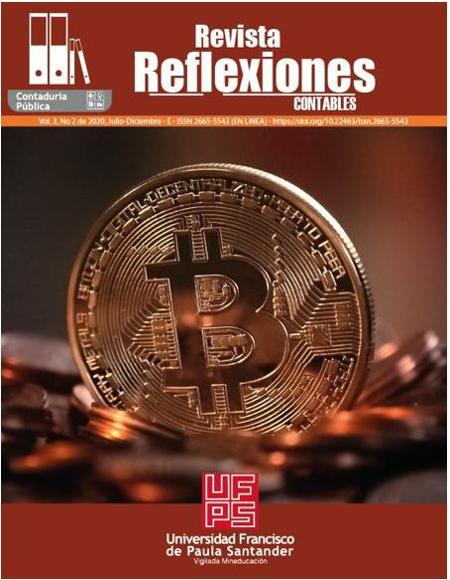The paradigm of ethics in accounting training and the approach of its participants
El paradigma de la ética en la formación contable y el enfoque de sus intervinientes
Main Article Content
Currently the world lives a situation called corruption, where culture and the economy are the excuse of the public media as the trigger for the failures of some positions held under the different professions of a country, thus coming to discuss the issue of ethics of a professional, trying to delve more deeply into the need for training of each individual as an indispensable process that must be accessed to strengthen the ability to assume their role in professional society. Being that ethics is the value by which the behavior of the human being in society is evaluated, the power of decision of good or evil, understanding the principles of integral, honest and honest performance in the work environment of an individual within of his profession, area, department, job or duty delegated under his responsibility. Given the previous guidelines about ethics in general and professional, we intend to present with this article some paradigms that have been generated over the years in the accounting field, why they have been generated, the thinking of those who intervene, the consequences and the benefits that the neglect to maintain, carry out, encourage and / motivate professional ethics has brought with it. Let us clarify that a public accountant is a person with a decisive responsibility in society, his actions are subject to tax processes of people and organizations where he is the one who gives public faith of the accounting and financial information.
Downloads
Article Details
Actualícese, (2018). Actos corruptos: ¿qué tan obligados están los contadores, revisores o auditores a detectarlos?, Recuperado de: https://actualicese.com/actos-corruptos-que-tan-obligados-estan-los-contadores-revisores-o-auditores-a-detectarlos/
Anchila, Y., Navarro K. y Torres V. (2020). Factores Éticos Que Influyen En La Profesión Contable, Tesis de pregrado, Universidad Cooperativa de Colombia
Cagua A. (2018). Factores Éticos Que Influyen En La Profesión Contable, Tesis de pregrado, Universidad Militar Nueva Granada
Companioni, O. (2015). El proceso de formación profesional desde un punto de vista complejo e histórico-cultural, Revista Electrónica Actualidades Investigativas en Educación, 15(3). Recuperado de: https://www.scielo.sa.cr/pdf/aie/v15n3/1409-4703-aie-15-03-00567.pdf
Hernández-Gil, C., Losada-Rodríguez, N., & Orozco-Calderón, D. (2019). La influencia de la contabilidad creativa en la ética profesional del Contador Público. Revista de Investigación, Desarrollo e Innovación, 10(1), 53-65
Granada, P y Carvajal L. (2004). La educación contable en Colombia. Un reto para el éxito. Recuperado de: https://www.gestiopolis.com/educacion-contable-colombia-reto-para-exito/
León, H. A. R. (2019). Seguir una norma en la cultura contable colombiana. Criterio Libre, 18(31), 211-246.
Mateus, C. (2019). El rol del Contador Público como Gerente de Información, Recuperado de: https://www.portafolio.co/contenido-patrocinado/rol-del-contador-publico-en-la-globalizacion-como-gerente-de-informacion-526870
Martínez, C. (2018). Los 12 Tipos de Ética y sus Características (con Ejemplos), Recuperado de: https://www.lifeder.com/tipos-de-etica/
Menéndez, A. (1972). Ética profesional. Editorial Herrero hermanos.
Ovallos D., Álvarez A. y Miranda A. (2017). Ética y Responsabilidad Social del Contador frente a las Normas Internacionales de Información Financiera (NIIF) en Colombia. Un Análisis Prospectivo, Revista Espacios, Recuperado de: https://www.revistaespacios.com/a17v38n37/a17v38n37p14.pdf
Vega Monge, W. (2019). Ética profesional, desempeño laboral y percepción de la corrupción del personal operador de justicia de la ciudad del Cusco, 2017, tesis de pregrado Universidad Nacional de San Antonio Abad del Cusco







